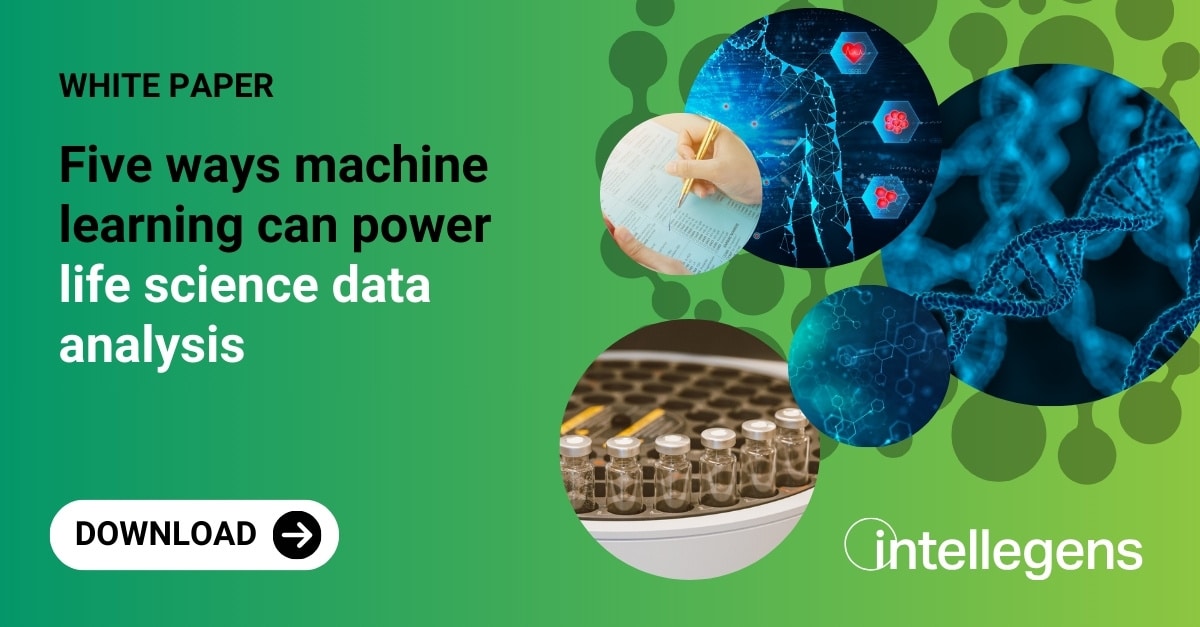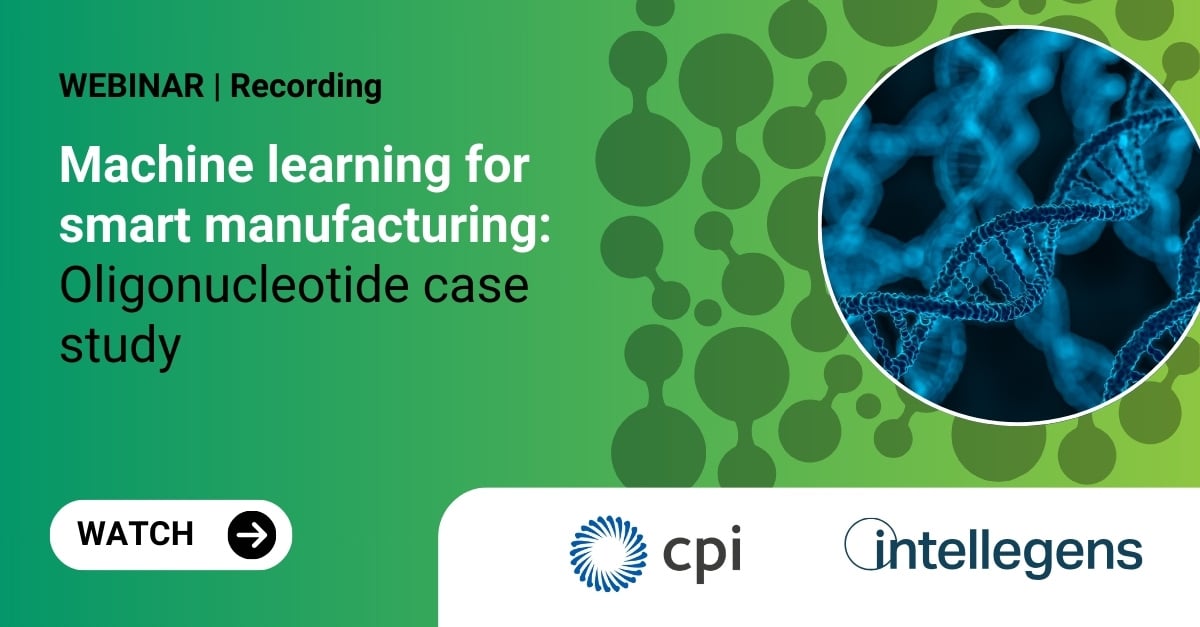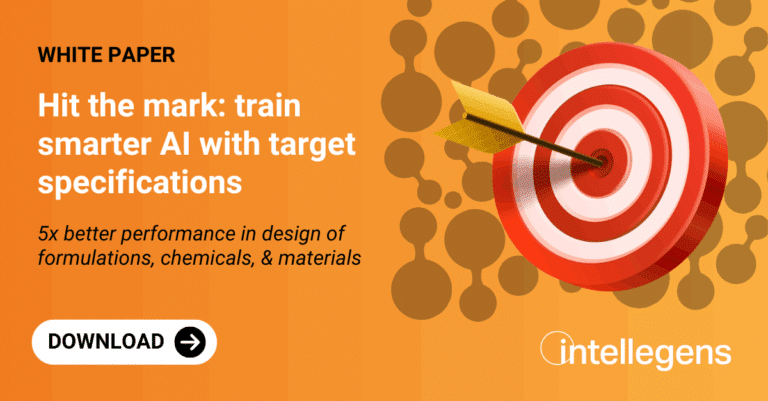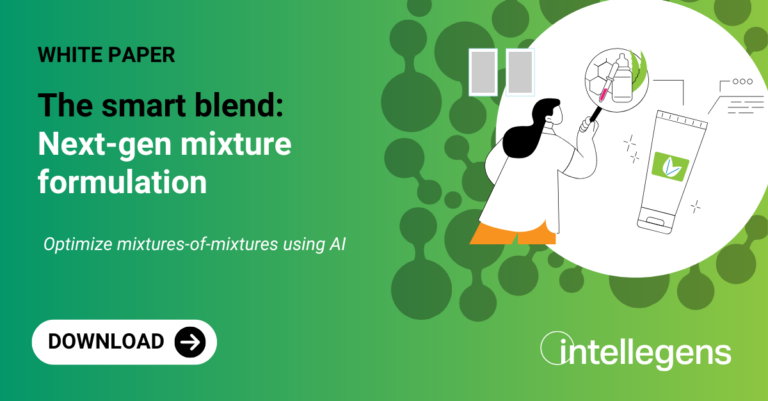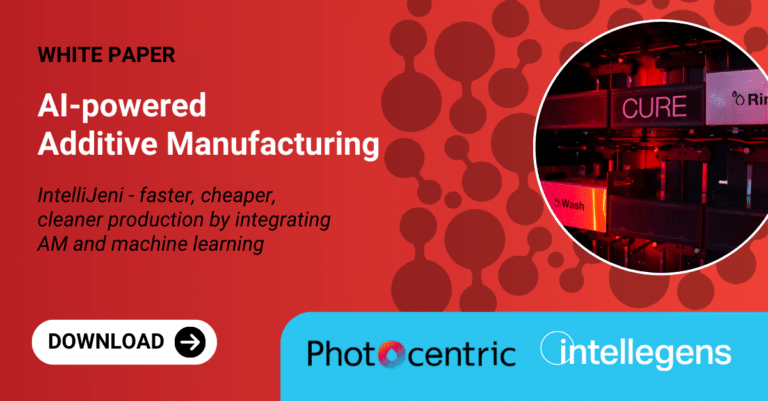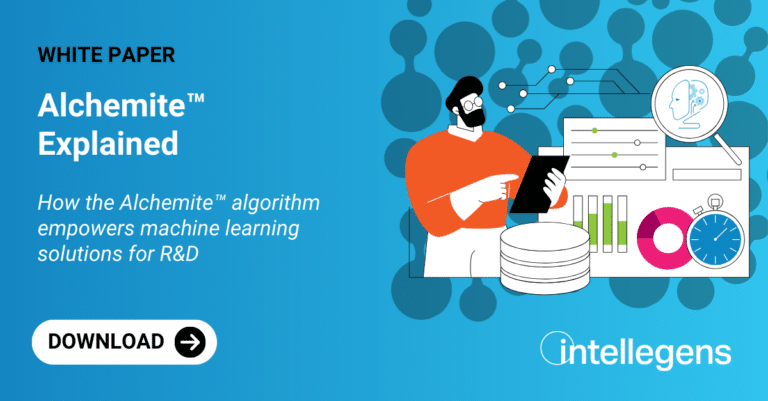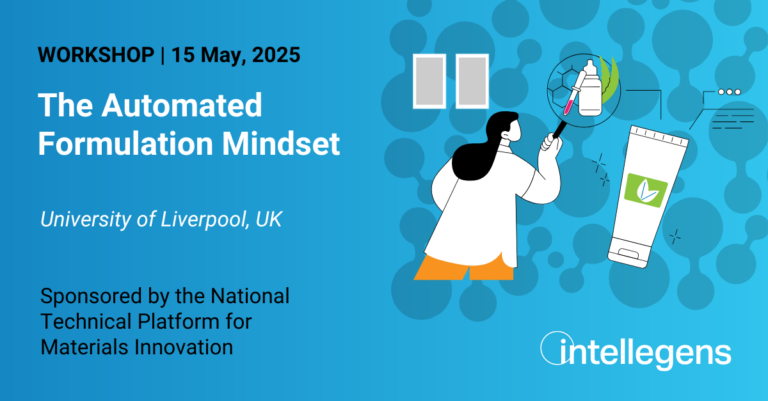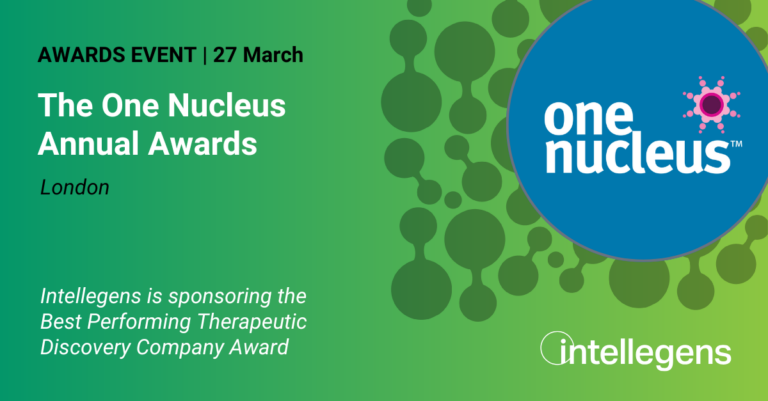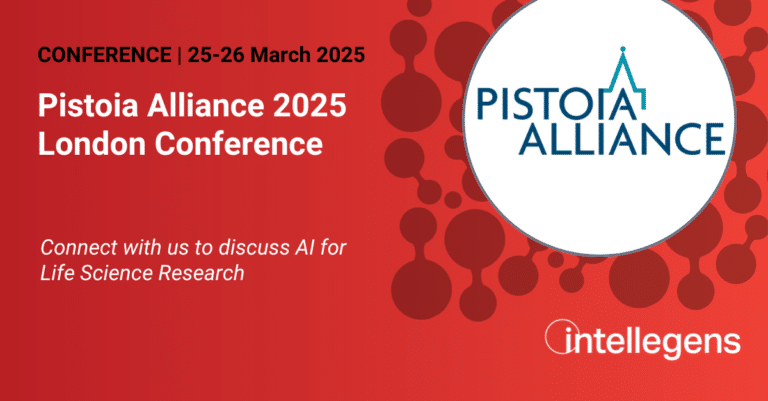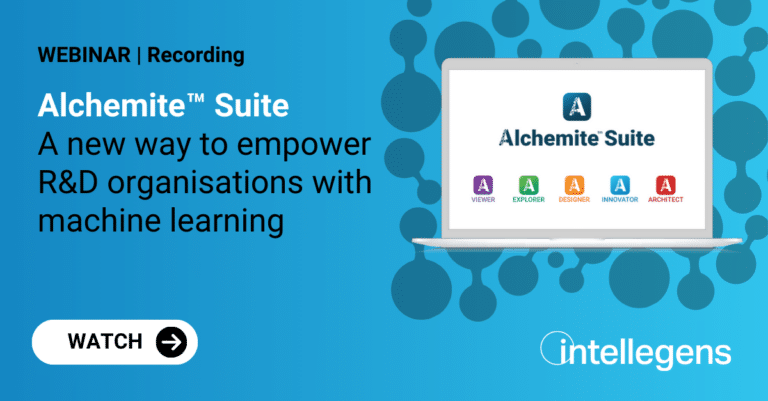Life science researchers face an exponential expansion in data volumes, while wrestling with objectives including: minimising time-to-market, maximising efficacy at the same time as ensuring safety, and creating better-targeted therapies. Machine learning can turn this data from a time-sink into a resource that accelerates innovation
With Alchemite™, customers accelerate innovation in:
- Drug discovery, mining data to help identify small molecule or biological therapeutic entities, drug targets, or drugs that could be re-purposed
- Translational medicine, for example, predicting pharmacokinetic and ADME properties
- Clinical studies, improving study design feasibility and providing insights into product design from population studies
- Formulation and manufacturing, improving yields and responding to regulatory changes
- Design of experiments (DOE), reducing workloads by 50-80%
Example project: Oligonucleotides
Through a case study of an oligonucleotide project, learn how machine learning can improve the productivity of life science research and help to optimise manufacturing processes. With guest speaker CPI.
Alchemite™ for Design of Experiments
Alchemite™ is a data-driven experimental design tool that helps your organisation become more productive with no extra effort. Powerful machine learning enables your team to work smarter, reducing experimental time by up to 80%. No lengthy training courses, no need for advanced statistics, and no coding required. Apply it to lab experiments or clinical studies programmes.
Alchemite™ for R&D insights
Unlock the insights hidden in your data through the power of machine learning. In discovery, development, manufacturing, and beyond, Alchemite™ makes it quick and easy to learn from any dataset, creating models that you can apply to fill in missing information, find critical relationships, and guide decision making.
Alchemite™ for formulations & manufacturing
Alchemite™ puts you on the fast track to optimising formulations and manufacturing processes. Formulation scientists can rapidly test out new ideas and gain breakthrough insights from their data. Experimentalists can find and explore new combinations while dramatically reducing the number of experiments needed. Apply the power of machine learning through desktop software that is quick to learn and easy to use.
